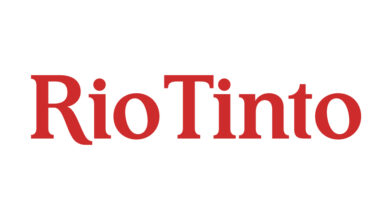Southeast Asia Transportation Industry Report 2022: Industry Overview 2018-2022, Macro Environments, Major Companies, Revenue Forecasts 2032-2032 – ResearchAndMarkets.com

DUBLIN–(BUSINESS WIRE)–The “Research Report on Southeast Asia Transportation Industry 2023-2032” report has been added to ResearchAndMarkets.com’s offering.
The development of the transport sector in Southeast Asian countries varies considerably. Thailand has the largest road mileage among Southeast Asian countries, with a total road mileage of about 700,000 km in 2020, followed by Vietnam and Indonesia with about 600,000 km.
In terms of railroads, Indonesia and Myanmar have the largest rail mileage among Southeast Asian countries with a total rail mileage of over 6,000 km in 2020. As of 2022, Laos has a total rail mileage of over 400 km.
Southeast Asia in this report includes 10 countries: Singapore, Thailand, Philippines, Malaysia, Indonesia, Vietnam, Myanmar, Brunei, Laos and Cambodia. With a total population of over 600 million by the end of 2021, Southeast Asia has an overall economic growth rate higher than the global average and is one of the key drivers of future global economic growth.
According to the publisher’s analysis, the economic levels of the 10 Southeast Asian countries vary greatly, with Singapore being the only developed country with a per capita GDP of about US$73,000 in 2021. While Myanmar and Cambodia will have a GDP per capita of less than US$2,000 in 2021.
The population and minimum wage levels also vary greatly from country to country, with Brunei, which has the smallest population, having a total population of less than 500,000 people in 2021, and Indonesia, which has the largest population, having a population of about 275 million people in 2021.
The most economically advanced countries in Southeast Asia do not have a legal minimum wage, with the actual minimum wage exceeding US$400 per month (for foreign maids), while the lowest minimum wage level in Myanmar is only about US$93 per month.
Singapore is the most developed country in Southeast Asia in terms of water transport. In 2020, the port of Singapore will have a foreign trade cargo throughput of 590 million tons and a container throughput of 36,871,000 TEUs, while Myanmar will have a container throughput of only about 1 million TEUs.
With more than two hundred airports serving domestic routes, Indonesia ranks among the top Southeast Asian countries in terms of domestic passenger and cargo traffic. Among international routes, Thailand ranked first among Southeast Asian countries with over 80 million international passengers in 2019, while Brunei and Laos had only about 2 million international passengers.
In terms of cargo, Singapore Airport had the highest international cargo throughput, with 930,000 tons of international cargo loaded and 1,084,000 tons unloaded in 2019, 50 times the international cargo throughput of Brunei and Laos in the same period.
Overall, the transportation industry in Southeast Asian countries has been developing in recent years, especially the rise of emerging markets such as Vietnam and Thailand, with rapid economic growth, which has driven the development of the transportation industry.
According to the publisher’s forecast, Southeast Asia’s transportation industry will continue to grow from 2023-2032. On the one hand, cheap labor and land costs have attracted a large number of foreign investors to shift their production capacity to Southeast Asia, and the scale of foreign trade has expanded, promoting the development of its transportation industry.
On the other hand, Southeast Asia’s economic growth and increased domestic passenger and freight demand will also promote the development of the transportation industry.
Topics covered:
- Southeast Asia Transportation Industry Status and Major Sources in 2018-2022
- What is the Impact of COVID-19 on Southeast Asia Transportation Industry?
- Which Companies are the Major Players in Southeast Asia Transportation Industry Market and What are their Competitive Benchmarks?
- Key Drivers and Market Opportunities in Southeast Asia Transportation Industry
- What are the Key Drivers, Challenges, and Opportunities for Southeast Asia Transportation Industry during 2023-2032?
- What is the Expected Revenue of Southeast Asia Transportation Industry during 2023-2032?
- What are the Strategies Adopted by the Key Players in the Market to Increase Their Market Share in the Industry?
- What are the Competitive Advantages of the Major Players in Southeast Asia Transportation Industry Market?
- Which Segment of Southeast Asia Transportation Industry is Expected to Dominate the Market in 2032?
- What are the Major Adverse Factors Facing Southeast Asia Transportation Industry?
Southeast Asia Transportation Industry
- Macro Environment
- Geography
- Population
- Economy
- Manufacturing Minimum Wage
- Transportation Industry Overview 2018-2022
- Land Transportation
- Water Transportation
- Air Transportation
- Analysis of Major Transportation Companies
Southeast Asia Transportation Industry Outlook 2023-2032
- Analysis of Factors Affecting the Development of Southeast Asia’s Transportation Industry
- Favorable Factors
- Unfavorable Factors
- Southeast Asia Transportation Industry Development Forecast 2023-2032
- Impact of the COVID-19 Outbreak on the Transportation Industry
Countries Covered
- Singapore
- Thailand
- Philippines
- Malaysia
- Indonesia
- Vietnam
- Myanmar
- Brunei
- Laos
- Cambodia
For more information about this report visit https://www.researchandmarkets.com/r/nqrwfg
About ResearchAndMarkets.com
ResearchAndMarkets.com is the world’s leading source for international market research reports and market data. We provide you with the latest data on international and regional markets, key industries, the top companies, new products and the latest trends.
Contacts
ResearchAndMarkets.com
Laura Wood, Senior Press Manager
[email protected]
For E.S.T Office Hours Call 1-917-300-0470
For U.S./ CAN Toll Free Call 1-800-526-8630
For GMT Office Hours Call +353-1-416-8900




